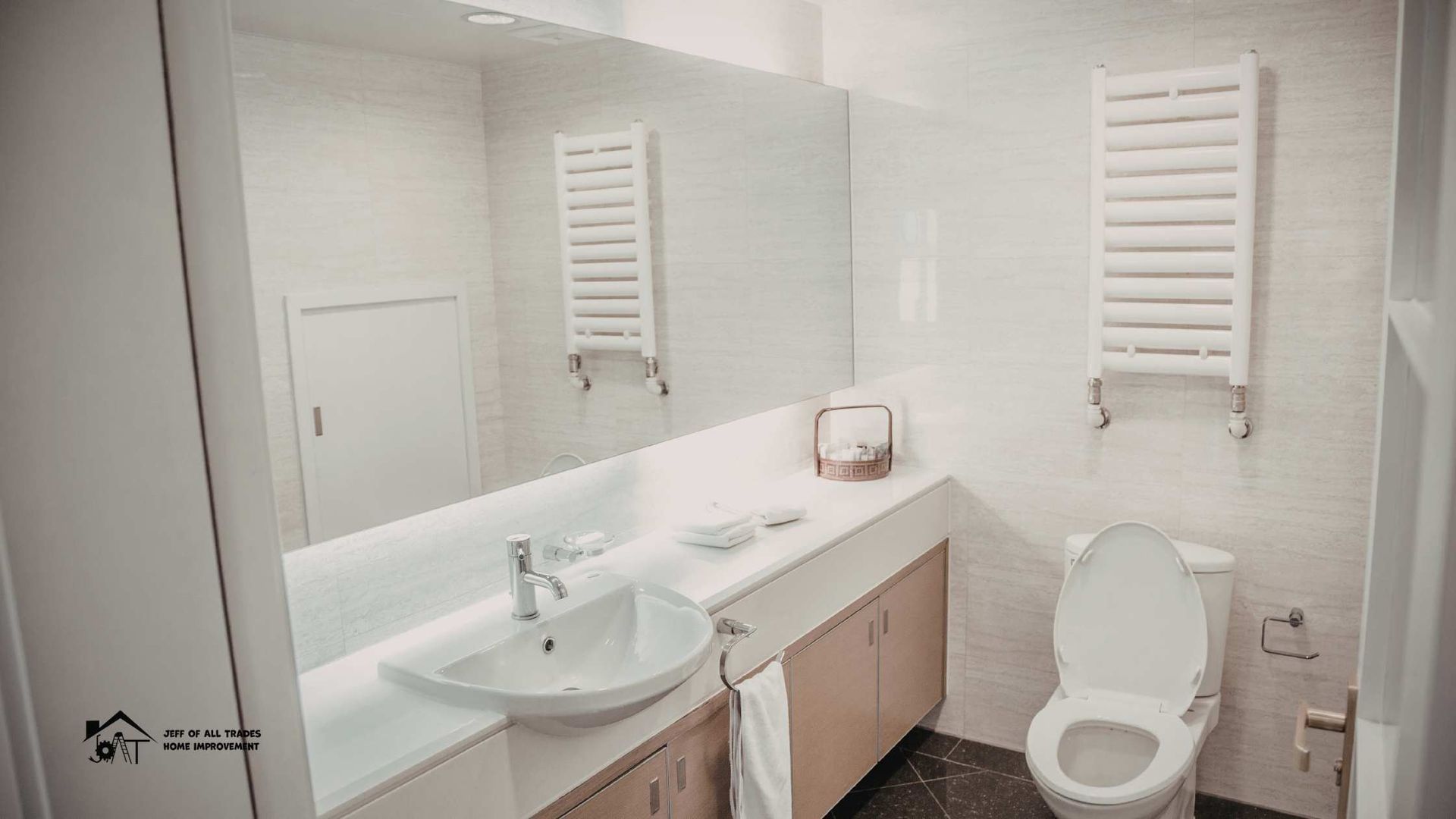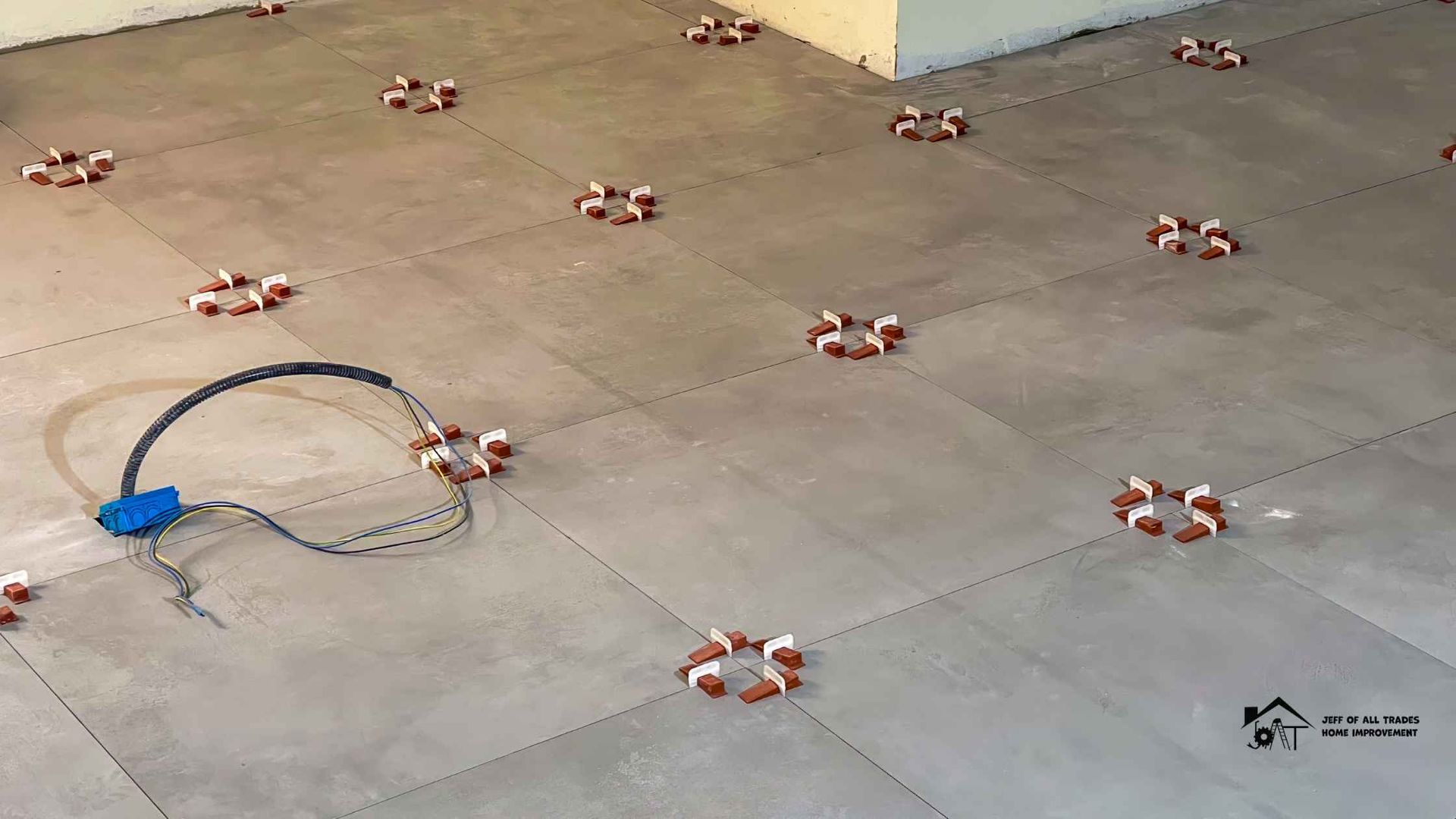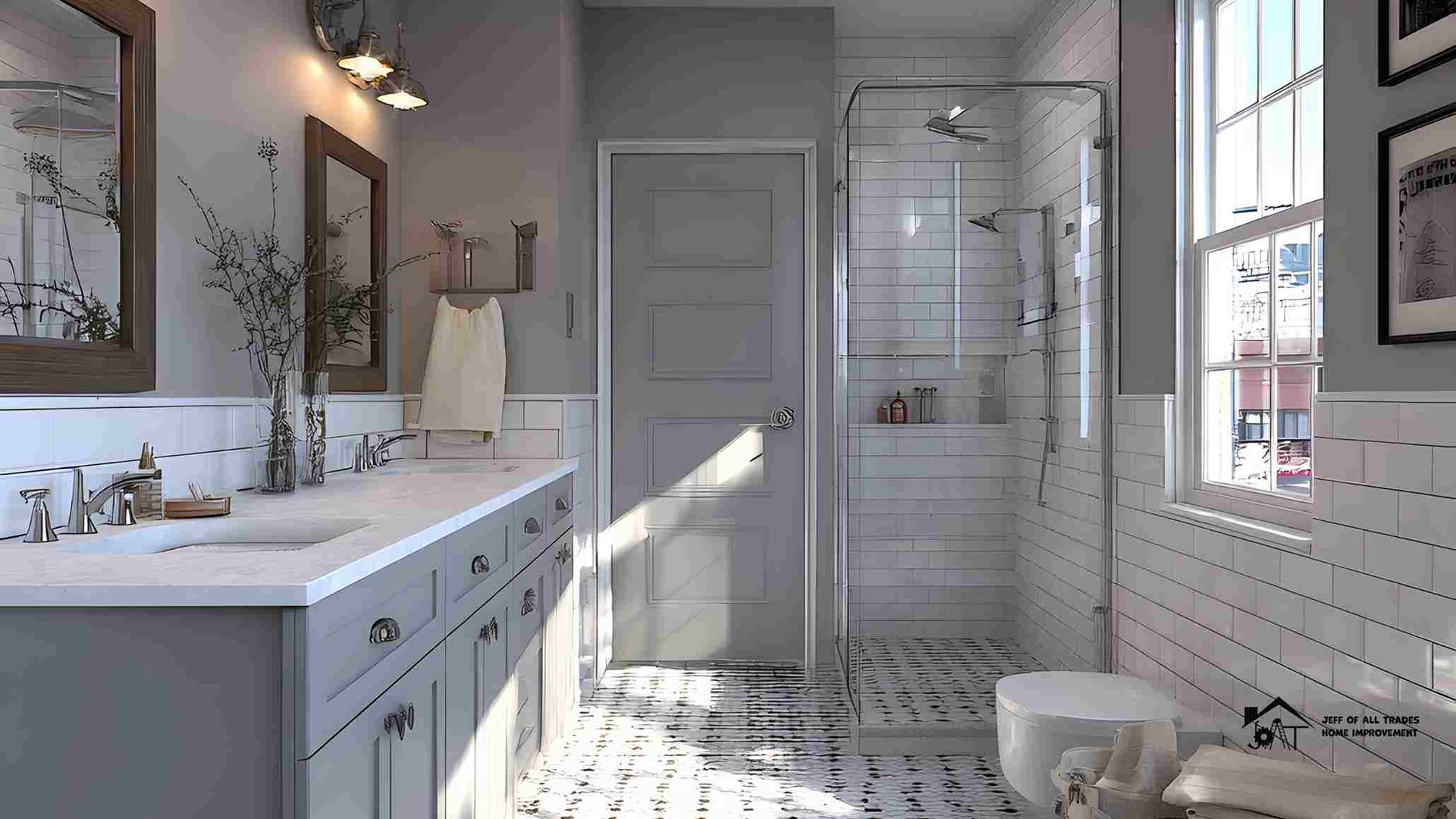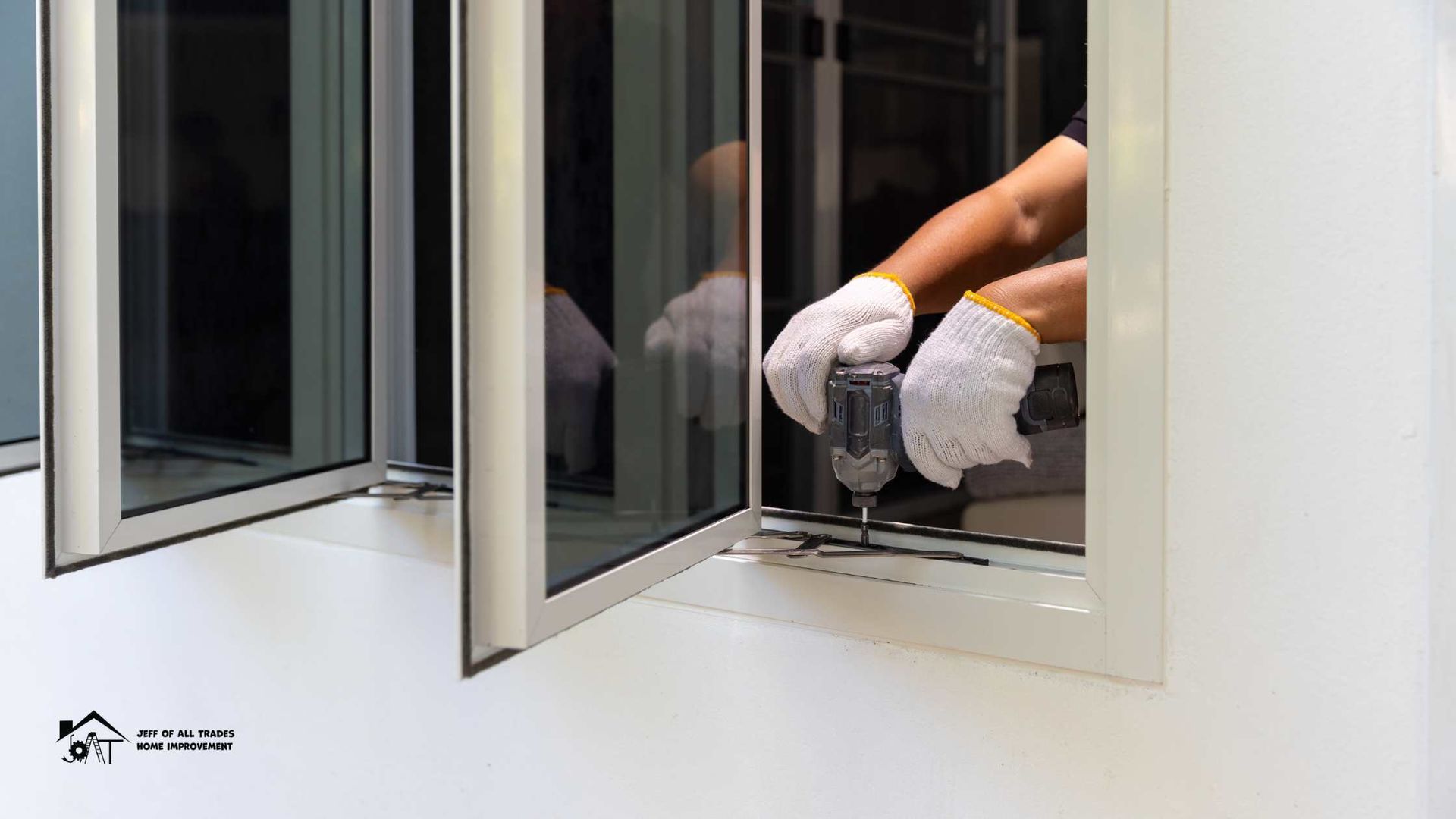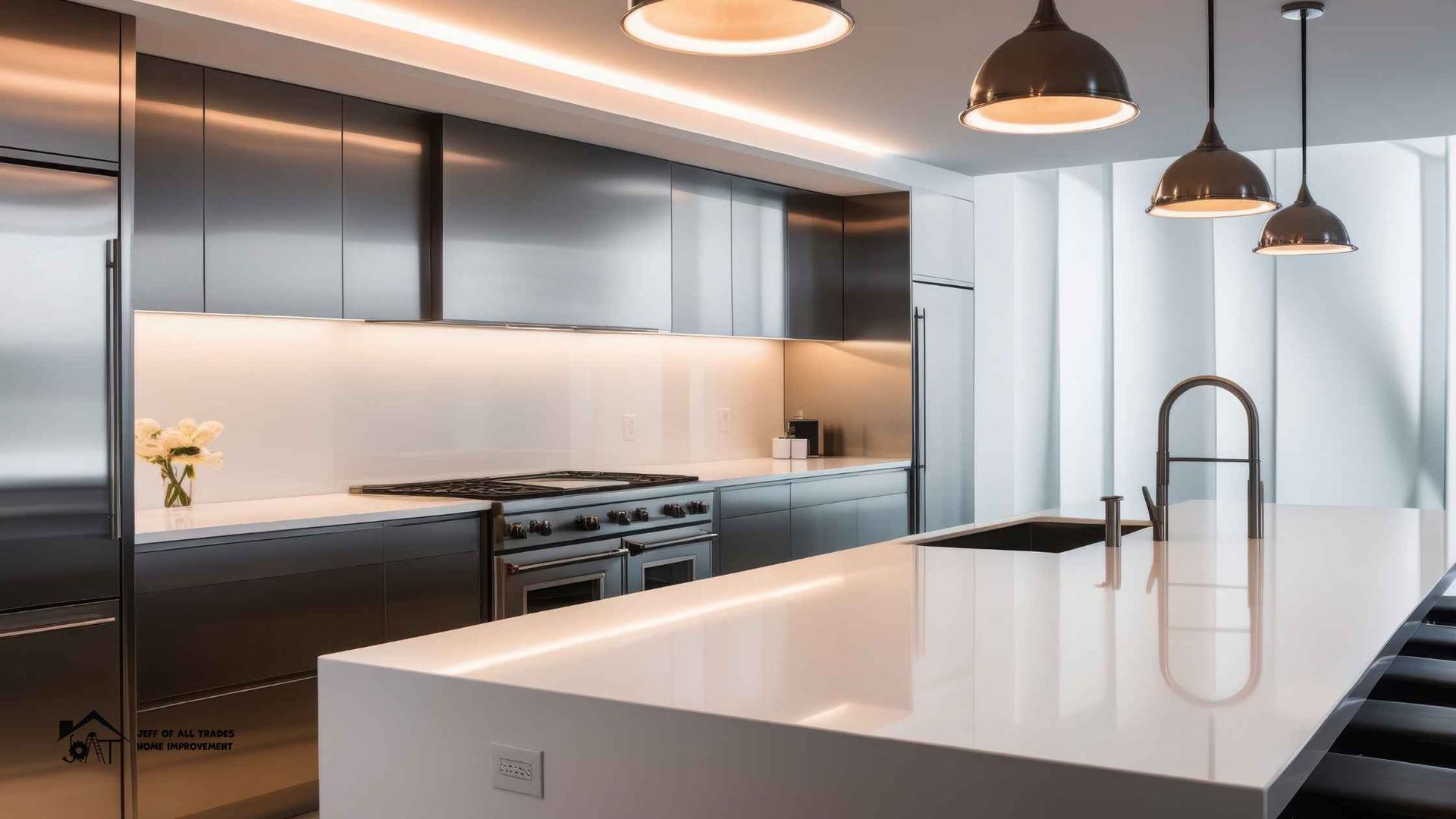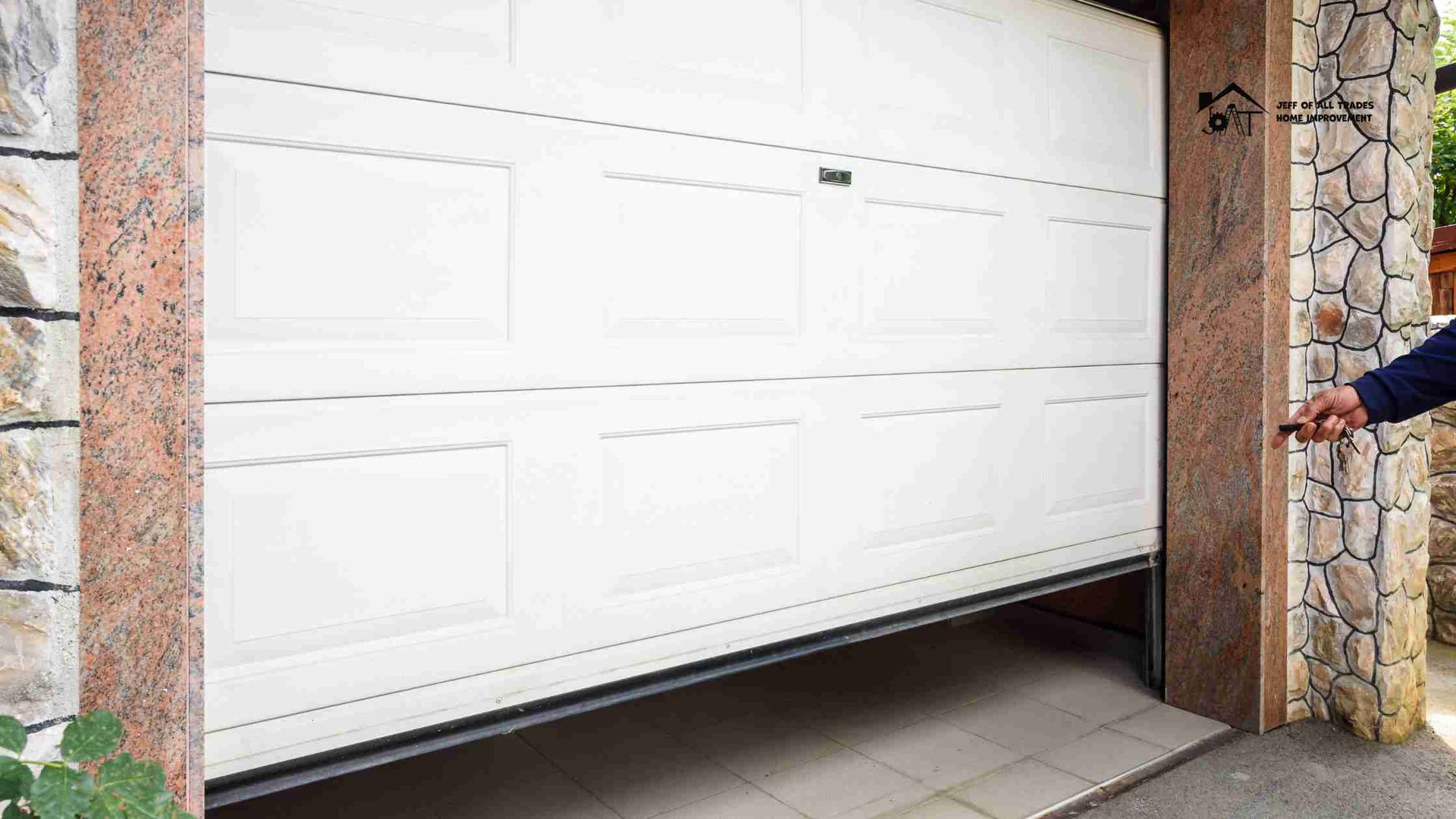Cabinet Organization Tips for a Tidy and Functional Kitchen
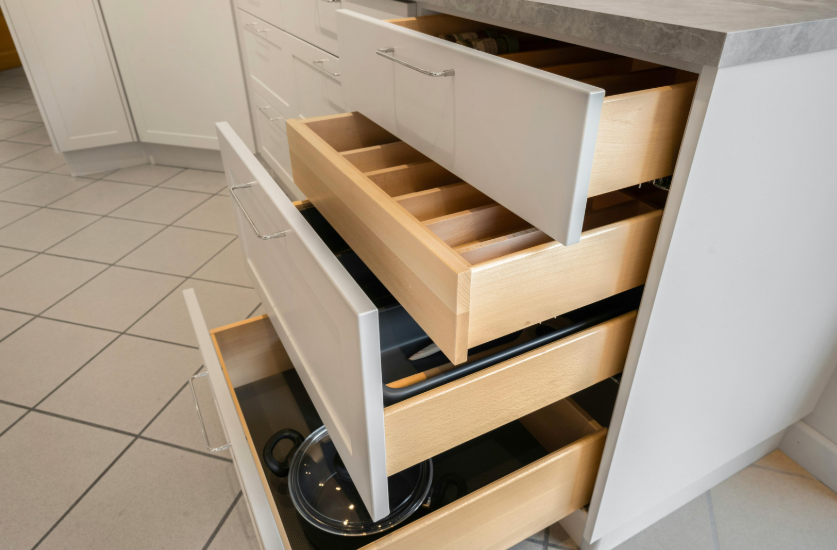
A clean, well-organized kitchen doesn’t just look nice—it makes cooking, cleaning, and daily life so much easier. Yet, many of us struggle to keep our kitchen cabinets in order. Whether your spices are scattered, your pots are buried, or your Tupperware is tumbling out, there’s a simple solution: smart organization.
At Jeff of All Trades, we know that a functional kitchen starts with clever storage. In this guide, we’ll share practical and easy-to-follow Cabinet Organization Tips that can transform your kitchen into a tidy and efficient space. Whether you have a small kitchen or a large one, the goal is to make it work for you.
Why Cabinet Organization Matters
Before we dive into the tips, let’s talk about why cabinet organization is so important. A well-organized kitchen:
- Saves time when cooking or cleaning
- Reduces stress by cutting down clutter
- Maximizes space so you can store more
- Improves cleanliness and hygiene
- It makes daily tasks easier
And you don’t need a complete remodel to make a big difference—even small changes can have a significant impact.
1. Declutter Before You Organize
Before adding fancy organizers or baskets, start by removing everything from your cabinets. Go through each item and ask:
- Do I use this regularly?
- Is it broken or expired?
- Do I have duplicates I don’t need?
Donate or toss anything you no longer use. This step alone will free up valuable space and give you a clean slate to work with.
2. Group Similar Items Together
One of the easiest ways to stay organized is by grouping similar items. Think about how grocery stores arrange their shelves—items with a similar purpose are kept together for a reason.
Here are some examples:
- Keep spices and seasonings in one area.
- Store baking supplies like flour, sugar, and baking soda together.
- Keep cooking oils and sauces near the stove.
- Group plastic containers and lids together.
By creating categories, you’ll always know where things belong—and you’ll save time searching for them.
3. Use Clear Containers and Labels
See-through containers let you see what’s inside at a glance, which is especially helpful for dry goods like rice, pasta, and cereal. Add labels to make it even easier to find what you need.
Use stackable bins for snacks, canned goods, or baking items. Drawer dividers are great for storing small utensils, tea bags, or measuring spoons.
Tip: Use a label maker or simple chalkboard labels that can be changed easily as needed.
4. Maximize Vertical Space
Many cabinets have tall shelves that leave considerable unused vertical space. Make the most of it by adding:
- Shelf risers for stacking dishes or mugs
- Pull-out baskets to hold small items
- Under-shelf hooks for hanging mugs or utensils
Don’t forget the inside of the cabinet doors! Add adhesive hooks or small racks to store items such as pot lids, measuring spoons, or cutting boards.
5. Install Pull-Out Shelves
If you find yourself digging around in the back of your cabinets, consider installing pull-out shelves or sliding trays. These allow you to see and reach everything without having to empty the entire cabinet.
They’re perfect for lower cabinets where items tend to get lost and forgotten. If you’re looking for professional help, consider asking about kitchen cabinet services in Basking Ridge to make these upgrades easy and stress-free.
6. Store Items Where You Use Them
Think about your kitchen in “zones.” This means placing items where you use them most often.
- Cooking Zone: Store pots, pans, utensils, and spices near the stove
- Prep Zone: Keep knives, cutting boards, and mixing bowls
- Cleaning Zone: Store dish soap, sponges, and trash bags under the sink
- Baking Zone: Store rolling pins, baking pans, and measuring cups in one place
This slight shift can make a huge difference in your daily kitchen routine.
7. Use Lazy Susans and Turntables
Round turntables (also called Lazy Susans) are perfect for hard-to-reach corners, especially in upper cabinets or deep shelves. They keep all your items visible and accessible with just a quick spin.
Use them for:
- Spices
- Condiments
- Oils and vinegar
- Baking supplies
They work well in pantries, too!
8. Make Use of Drawer Space
Drawers aren’t just for forks and spoons. Use deep drawers for storing pans, mixing bowls, or even pantry items. Add dividers to keep everything in place and prevent clutter.
Vertical storage can work great in drawers, too—store cutting boards or lids upright instead of flat.
9. Create a Kid-Friendly Zone
If you have children, set aside a lower cabinet just for them. Stock it with plastic cups, plates, and snacks so they can help themselves safely. This encourages independence and keeps them out of your way when you're cooking.
Tip: Use drawer locks or bumpers if you're concerned about safety.
10. Keep Countertops Clear
Cluttered counters can make even a large kitchen feel messy. Try to store as much as possible inside cabinets or drawers.
Keep only the essentials on the counter—like your coffee maker, toaster, or a small fruit basket. The less clutter you see, the more open and clean your kitchen will feel.
11. Rotate Items Seasonally
Just like your wardrobe, your kitchen tools can be rotated according to the season. Store holiday baking supplies, extra serving dishes, or specialty appliances (like ice cream makers or crockpots) in higher cabinets or storage areas during the off-season.
This keeps your everyday items easily accessible and avoids cluttering your primary storage.
12. Consider Custom Cabinet Features
If you're ready for a bigger update, consider adding custom features to your cabinets, such as:
- Pull-out trash and recycling bins
- Built-in spice racks
- Tray dividers
- Vertical pull-outs for canned goods
- Built-in wine racks
These features may require the help of a professional, but they can significantly boost your kitchen’s organization and value.
Bonus: Maintenance Tips to Keep Things Tidy
Getting organized is one thing—keeping it that way is another. Here are some Tips for a Tidy and Functional Kitchen that you can use every day:
- Perform a weekly reset: Return items to their designated locations at the end of each week.
- Purge once a month: Toss expired food and donate unused items.
- Teach your family the system: Ensure everyone knows where items belong.
- Don’t overstuff: Leave room for airflow and easy access.
- Stick to a system: Label shelves or create zones to guide long-term use.
Consistency is key. Once you’ve set up an organized system, it’s much easier to maintain.
Let Jeff of All Trades Help You Get Organized
Cabinet organization can be overwhelming, especially if your kitchen has unique challenges. That’s where Jeff of All Trades comes in. Our expert team can help you design storage solutions tailored to your specific space and needs.
From custom shelving and drawer installation to complete kitchen cabinet upgrades, we offer professional services that turn chaos into calm. We don’t just help you tidy up—we help you transform your kitchen into a functional, enjoyable part of your home.
Final Thoughts
Getting your cabinets organized doesn’t have to be complicated or expensive. With a bit of planning and a few helpful tools, you can create a space that perfectly suits your lifestyle. Whether you’re cooking dinner, packing lunches, or just trying to find the lid for that container, an organized kitchen makes life easier.
Remember, it’s not about perfection—it’s about creating a system that works for you and your family. With these cabinet organization tips, your dream of a tidy and functional kitchen is well within reach.
Ready to take the next step? Visit Jeff of All Trades today to learn more about our services and how we can help bring your vision to life.



